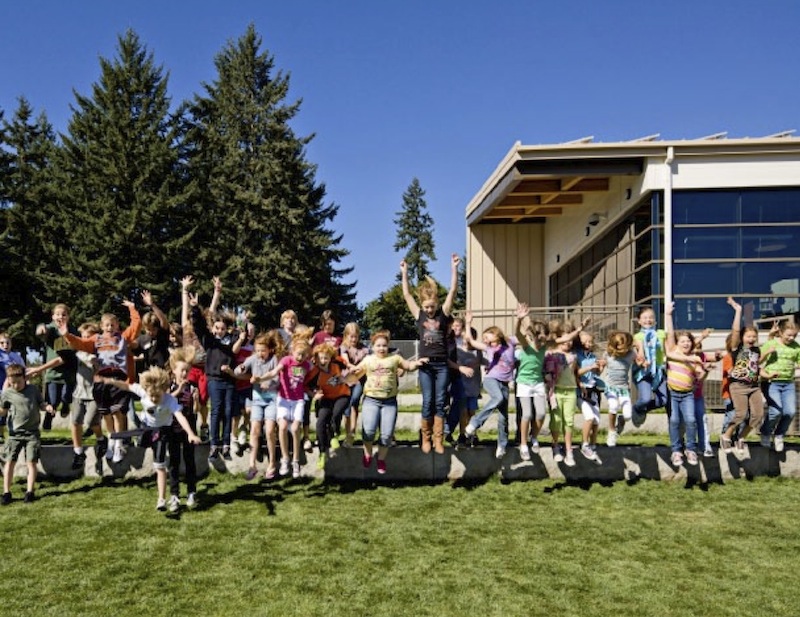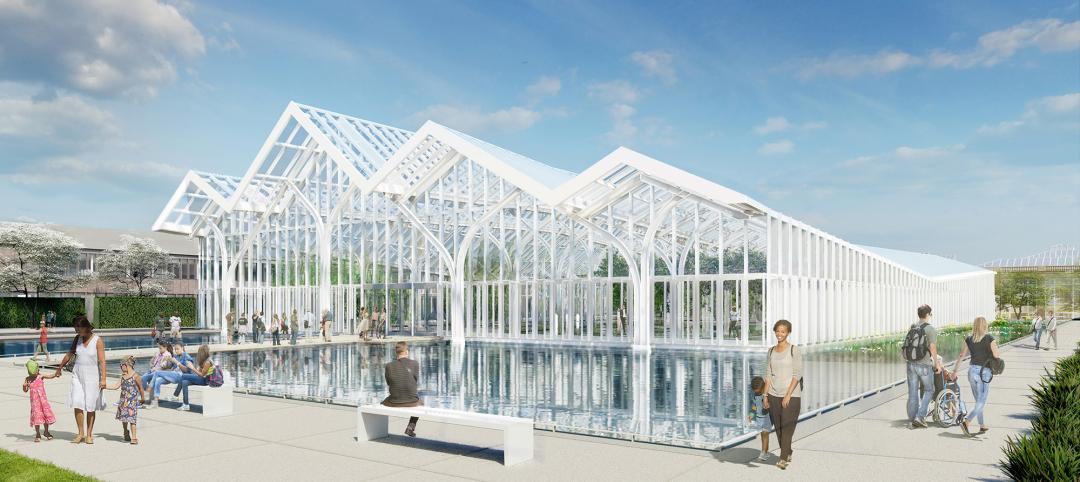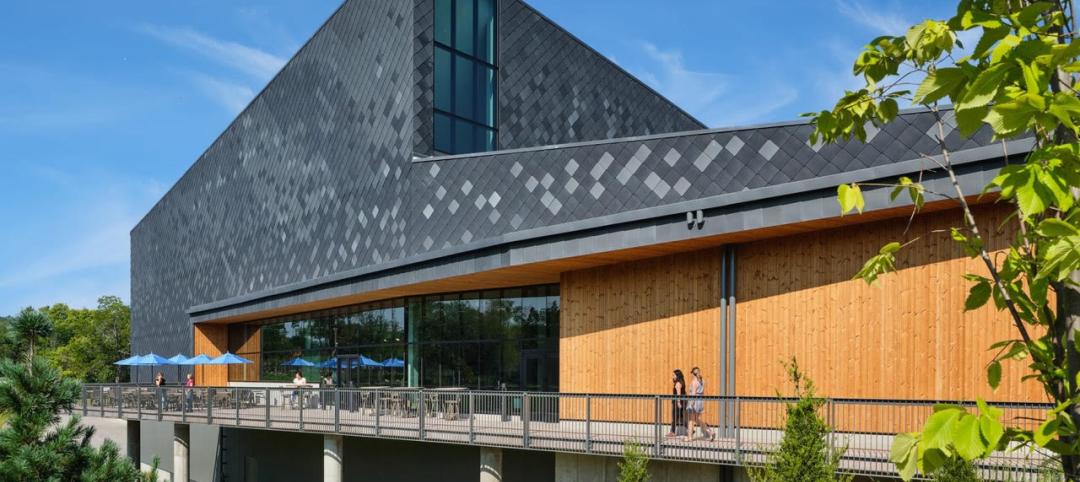DLR Group and the Institute for the Built Environment (IBE) at Colorado State University have collaborated on a research project to evaluate the effect of green school design on occupants and long-term building performance. IBE recently published the research report titled, "Linking Performance & Experience – An Analysis of Green Schools."
The findings show schools designed by DLR Group are more energy efficient, provide more space per student, and are constructed for less cost compared to regional averages for schools constructed during the same year. The overwhelming perception of school staff is that the learning environments within DLR Group green schools have a positive impact on health, achievement, and behavior.
“Design does not stop when the school opens," said DLR Group Senior Principal Jim French, AIA, who leads the firm’s K-12 practice. "The design process must include coming back to a project to measure building performance. If both the tangible metrics of energy efficiency and the intangible metrics of student and occupant satisfaction are not being evaluated, then as design professionals we are not truly meeting the needs of our K-12 clients and the communities they serve.”
The IBE researched 12 schools in eight states offering preschool through 8th grade instruction. IBE evaluated P-8 schools because these facilities offer a more controlled and consistent operational environment for study. For the purposes of the study, the schools in the research sample were third party certified or align with criteria for certification as sustainable buildings, and were in operation for at least 12 months.
The key findings include:
- A motivator to improve student health was only mentioned by a handful of respondents. However, when asked specifically about student health, 87% of respondents reported that they perceived a positive impact on student health, with most respondents specifically describing the positive impact of daylighting.
- 85% of respondents reported that their health and productivity were positively affected by the building.
- 71% of respondents perceived that the building has a positive effect on student achievement
- 71% perceived a positive effect on student behavior. For those that who did not share this perspective, many stated that it is very hard for them to identify the effect because of the many other variables which influence student achievement and behavior.
- Green building practices did not necessarily result in higher first costs. Out of the 10 sites in this sample, six were built for below the regional median cost for schools built in the same year, while four were built for costs greater than the regional median.
- The sample mean Energy Star score was 81, which indicates that the buildings are operating in the top 19th percentile. Nine out of the eleven building evaluated for Energy Star have a score over 75 and would receive the Energy Star award.
- Eight schools are operating at or better than the 2030 Challenge 50% reduction target. In addition, by organizing the schools by the year constructed, it is clear that over time the buildings' design has become increasingly more efficient.
Download the DLR Group/CSU high-performance schools study (PDF).
Related Stories
Market Data | Apr 1, 2024
Nonresidential construction spending dips 1.0% in February, reaches $1.179 trillion
National nonresidential construction spending declined 1.0% in February, according to an Associated Builders and Contractors analysis of data published today by the U.S. Census Bureau. On a seasonally adjusted annualized basis, nonresidential spending totaled $1.179 trillion.
Affordable Housing | Apr 1, 2024
Biden Administration considers ways to influence local housing regulations
The Biden Administration is considering how to spur more affordable housing construction with strategies to influence reform of local housing regulations.
Affordable Housing | Apr 1, 2024
Chicago voters nix ‘mansion tax’ to fund efforts to reduce homelessness
Chicago voters in March rejected a proposed “mansion tax” that would have funded efforts to reduce homelessness in the city.
Standards | Apr 1, 2024
New technical bulletin covers window opening control devices
A new technical bulletin clarifies the definition of a window opening control device (WOCD) to promote greater understanding of the role of WOCDs and provide an understanding of a WOCD’s function.
Adaptive Reuse | Mar 30, 2024
Hotel vs. office: Different challenges in commercial to residential conversions
In the midst of a national housing shortage, developers are examining the viability of commercial to residential conversions as a solution to both problems.
Sustainability | Mar 29, 2024
Demystifying carbon offsets vs direct reductions
Chris Forney, Principal, Brightworks Sustainability, and Rob Atkinson, Senior Project Manager, IA Interior Architects, share the misconceptions about carbon offsets and identify opportunities for realizing a carbon-neutral building portfolio.
Reconstruction & Renovation | Mar 28, 2024
Longwood Gardens reimagines its horticulture experience with 17-acre conservatory
Longwood Gardens announced this week that Longwood Reimagined: A New Garden Experience, the most ambitious revitalization in a century of America’s greatest center for horticultural display, will open to the public on November 22, 2024.
Office Buildings | Mar 27, 2024
A new Singapore office campus inaugurates the Jurong Innovation District, a business park located in a tropical rainforest
Surbana Jurong, an urban, infrastructure and managed services consulting firm, recently opened its new headquarters in Singapore. Surbana Jurong Campus inaugurates the Jurong Innovation District, a business park set in a tropical rainforest.
Cultural Facilities | Mar 27, 2024
Kansas City’s new Sobela Ocean Aquarium home to nearly 8,000 animals in 34 habitats
Kansas City’s new Sobela Ocean Aquarium is a world-class facility home to nearly 8,000 animals in 34 habitats ranging from small tanks to a giant 400,000-gallon shark tank.
Market Data | Mar 26, 2024
Architecture firm billings see modest easing in February
Architecture firm billings continued to decline in February, with an AIA/Deltek Architecture Billings Index (ABI) score of 49.5 for the month. However, February’s score marks the most modest easing in billings since July 2023 and suggests that the recent slowdown may be receding.

















